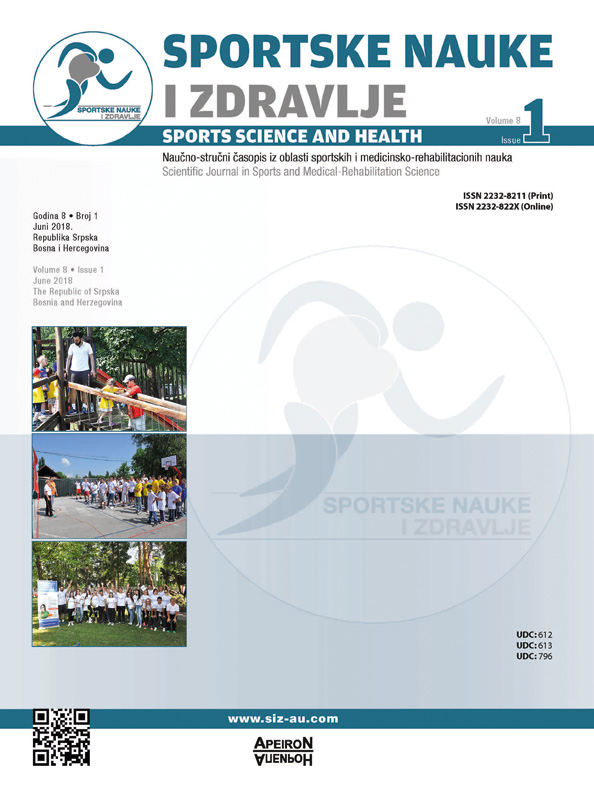Validation of the Scale Intended for the Assessment of the Quality of Life of Persons With Lumbal Syndrome // Validacija skale namenjene proceni kvaliteta života osoba sa lumbalnim sindromom
DOI:
https://doi.org/10.7251/SSH1801028NAbstract
In order to determine the metric characteristics of the scale intended for the assessment of the quality of life of persons with lumbar syndrome (PQL-LS) on a sample of 202 subjects (M = 93; F = 109), three procedures for checking its metric characteristics were applied: factor analysis (Principal Components Analysis) with the Direct Oblimin method, in order to identify the latent structure of the perception of the quality of life of the respondents; Scale Reliability Analysis based on Cronbach’s alpha coefficient; and a validation check based on the coefficient of internal correlation of the scale (Spearman’s correlation of rank - rho). The results show that the scale has good metric characteristics and that it has a multi-item character (twenty-seven indicators). The internal accordance of the scale is in the high reference range of the Cronbach’s alpha coefficient (0.947). The values of correlation coefficient of subscale scores: physical health, mental health, social relations and environment show a high degree of correlation with the overall mean value of the entire scale, which confirms the validity of the analyzed domains (subscale) and the scale as a whole (at the level of significance r <0.001). All 27 variables yielded the corresponding weight of the single extracted component (KMO = 0.901; Sig. = 0.000), which determined that the scale had adequate validity. Based on the identified good metric characteristics, this scale can be recommended for use as a unique/autonomous multi-item scale designed to assess the quality of life of adults with lumbar syndrome.Downloads
Published
2018-07-26
Issue
Section
Чланци
